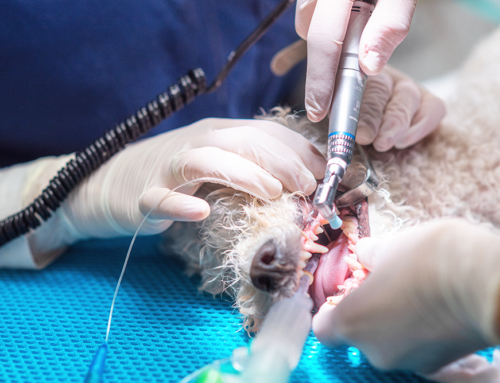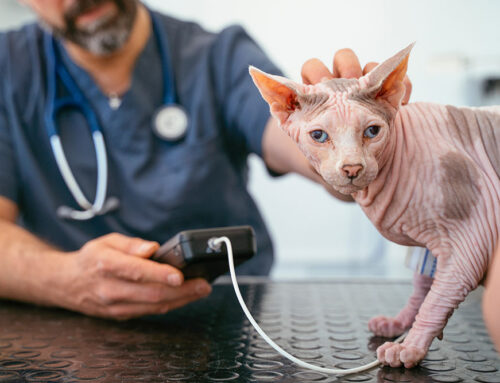Providing essential preventive care can not only improve your pet’s quality of life but also prolong their time by your side. Our Willow Wood Animal Hospital team provides guidelines to help ensure your pet receives the care they need to live a long, healthy, and happy life.
Maintain your pet at a healthy weight
The majority of pets in the United States are overweight or obese, putting them at higher risk for conditions such as hypertension, diabetes, cancer, kidney disease, and arthritis. Guidelines to keep your pet at a healthy weight include:
- Assess your pet’s weight status — Ask our veterinary team to help determine your pet’s weight. We will weigh your pet and evaluate their body conditioning score (BCS) to determine if they are at an ideal weight. If your pet is carrying excess pounds, we can devise a safe plan to help them lose the weight.
- Monitor your pet’s weight — Use a pet scale to weigh your pet every three to four weeks to monitor their weight and ensure they aren’t gaining or losing weight.
- Determine your pet’s caloric needs — Use a pet calorie calculator to determine how many calories your pet needs per day.
- Read your pet’s food label — Consult the pet food label to know how much to feed your pet daily.
- Properly measure your pet’s portions — Use a measuring cup or kitchen scale to accurately measure your pet’s meal portions.
Schedule regular wellness visits for your pet
Early disease detection allows for early intervention to improve your pet’s prognosis. Adult pets should be evaluated by a veterinarian at least once a year, and senior pets should be examined every six months. A veterinary wellness visit includes:
- Comprehensive physical exam — Our veterinary team thoroughly examines your pet from head to tail, checking for abnormalities such as heart murmurs or arrhythmias, dental disease, and abdominal masses.
- Blood work — We perform a complete blood count (CBC) and a biochemistry profile to detect conditions such as anemia, infection, diabetes, electrolyte imbalances, and kidney and liver disease.
- Urinalysis — We assess your pet’s urine to detect issues such as urinary tract infection, urinary stones, diabetes, and kidney failure.
- Parasite detection — We perform a fecal check and a heartworm test to detect harmful parasites that may affect your pet.
Provide year-round parasite prevention for your pet
Many dangerous parasites can cause significant health complications for your pet. All pets, including those who live only indoors, should receive year-round parasite prevention to protect against parasites, such as:
- Fleas — Fleas ingest as much as 15 times their own body weight, and the female flea lays about 20 to 30 eggs a day—which makes these parasites much more than a nuisance. They can cause severe anemia, especially in puppies and kittens, and can transmit diseases such as Bartonella henselae and flea-borne typhus.
- Ticks — Ticks are parasitic arachnids that can transmit diseases such as Lyme disease, anaplasmosis, and Rocky Mountain spotted fever, which cause significant health complications for affected pets, and can be hard to treat.
- Heartworms — Transmitted by mosquitoes, heartworms are dangerous parasites that can seriously damage your pet’s heart and lungs.
- Intestinal parasites — Intestinal parasites, such as hookworms, whipworms, and roundworms, can cause GI upset and a failure to thrive.
Implement appropriate dental care for your pet
Dental disease affects most pets by 3 years of age, and causes complications such as bad breath, bleeding and painful gums, loose or missing teeth, and tooth root infections. In addition, the bacteria that cause dental disease can enter your pet’s bloodstream, damaging organs throughout their body, and potentially leading to heart problems and kidney failure. Appropriate dental care can help prevent these issues, and taking the following steps can ensure your pet’s mouth remains healthy:
- Scheduling regular professional veterinary dental cleanings — A professional veterinary dental cleaning is the only way to remove the dangerous bacteria from under your pet’s gum line where the most damage is done. These procedures are performed under general anesthesia so our veterinary team can thoroughly assess and clean your pet’s teeth and to protect your pet from unnecessary stress and anxiety.
- Brushing your pet’s teeth — Daily toothbrushing removes harmful bacteria from your pet’s teeth between professional cleanings. Ensure you use pet-friendly dental products, since human products can be toxic to pets.
Exercise your pet daily

All pets need daily exercise to keep them fit and help counteract unwanted weight gain. Suggestions for exercising with your pet include:
- Find new routes — When walking your pet, find new routes to keep you and your pet interested.
- Use a laser pointer — Use a laser pointer or wand-style toy to entice your cat to get moving. Their acrobatic antics will keep you entertained.
- Enter a sporting event — If your dog is athletic, consider training them for a sporting event such as agility, dock diving, or flyball.
Following these guidelines will help improve your pet’s good health and quality of life and prolong their time by your side. If you would like to schedule a wellness examination or professional veterinary dental cleaning, contact our Willow Wood Animal Hospital team, so we can help add years to your pet’s life.






Leave A Comment